6 Key Factors to Consider When Selecting the Right IT Company

In today's digital age, having reliable IT support is essential for businesses of all sizes.
The right IT company can provide you with the technology solutions you need to grow your business and stay competitive in the market.
But with so many IT providers to choose from, how do you know which one is the right fit for your company?
In this article, we'll discuss some criteria for selecting the right IT company, give some examples, and explore what's most important and least important when choosing an IT company.
Key Factors to Consider When Selecting the Right IT Company
Choosing an IT support company must be quite difficult because the digital service they provide is not tangible.
Sometimes it is hard to communicate how an IT service provider differs from another, and many times the price tags have a higher role rather than other criteria. But, there is so much more than the cost alone.
So, if your business needs a new IT partner but you do not know how to choose the right one, here are some factors to consider when choosing an IT provider.
1. Service Level Agreements (SLAs)
A Service Level Agreement (SLA) is a contract between a service provider and a client that outlines the agreed-upon level of service that the provider will deliver to the client and the response times:
“How quickly will your IT problems be fixed once you report them?”
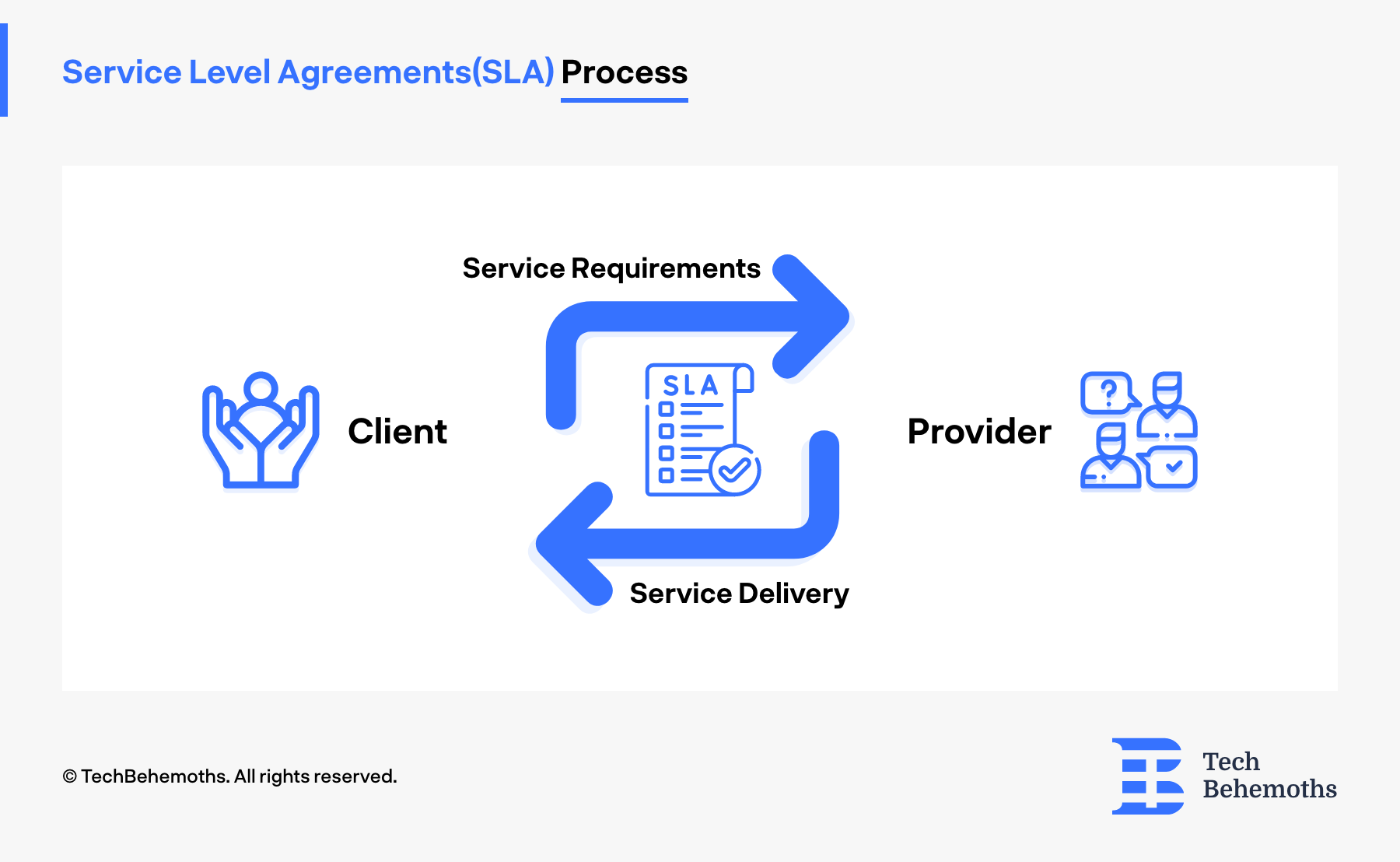
It is important to compare SLAs to your business requirements.
For example, you have an application that is critical in running the business, and you can’t do without that application for more than three or four hours, so the SLAs have to match that, the IT company will guarantee to fix that application within four hours.
That is the perfect match. Otherwise, it may lead to frustration with your IT provider. Check the SLAs of the IT support company to ensure they align with your business needs.
2. Experience and Expertise in Sector
It is important to choose an IT company with significant experience in the services you require. An experienced IT company usually has a proven track record, a good client base, and the necessary knowledge to provide solutions for your business.
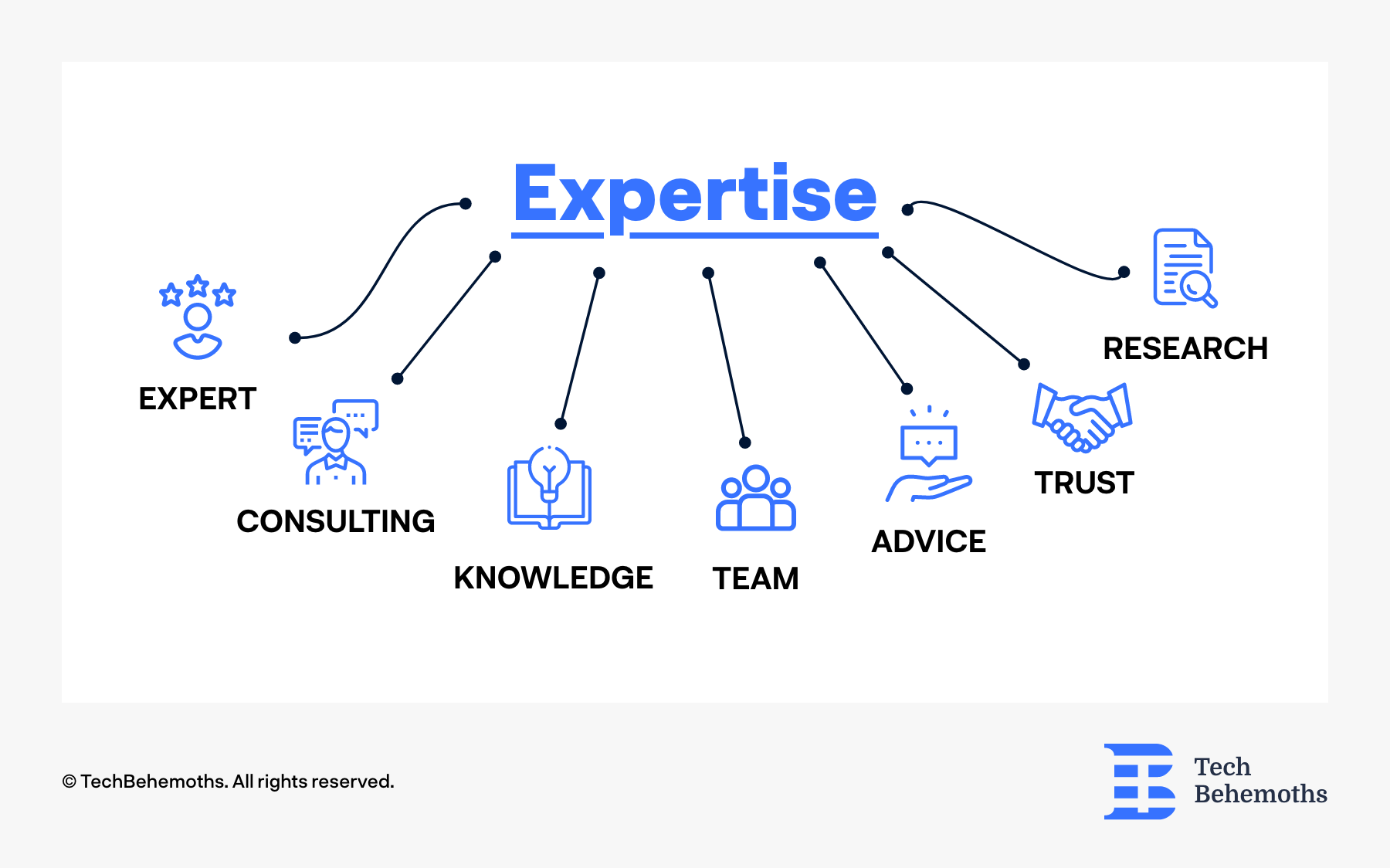
Check their portfolio and client testimonials to see if they have experience in your industry or with similar projects. Ask the IT companies what other partners they have worked with.
For example, if you need help with accounting software, choose a company that did something similar before, because it already knows all the applications accountants use, so they already know what the pain points are. This means that the IT company is capable to deliver faster and better compared to inexperienced competitors.
Look for an IT company with a proven track record of success.
3. Security Measures
Security should be a top priority when selecting an IT provider, this is because IT providers have access to sensitive information, such as client data, financial information, and intellectual property, which needs to be protected from unauthorized access. It's important to ensure that your IT provider has a comprehensive security program in place to protect your data and systems from cyber threats.
IT companies are also a target for Cyber Criminals. A lot of IT companies are selling cybersecurity services but they actually apply the same principles in their own businesses. Get to know how the IT companies that you choose are protecting themselves against cybercrime. Ask about their security protocols, such as firewalls, antivirus software, and data encryption.
Make sure that the IT company you choose takes security seriously and has measures in place to protect your data and systems from cyber threats.
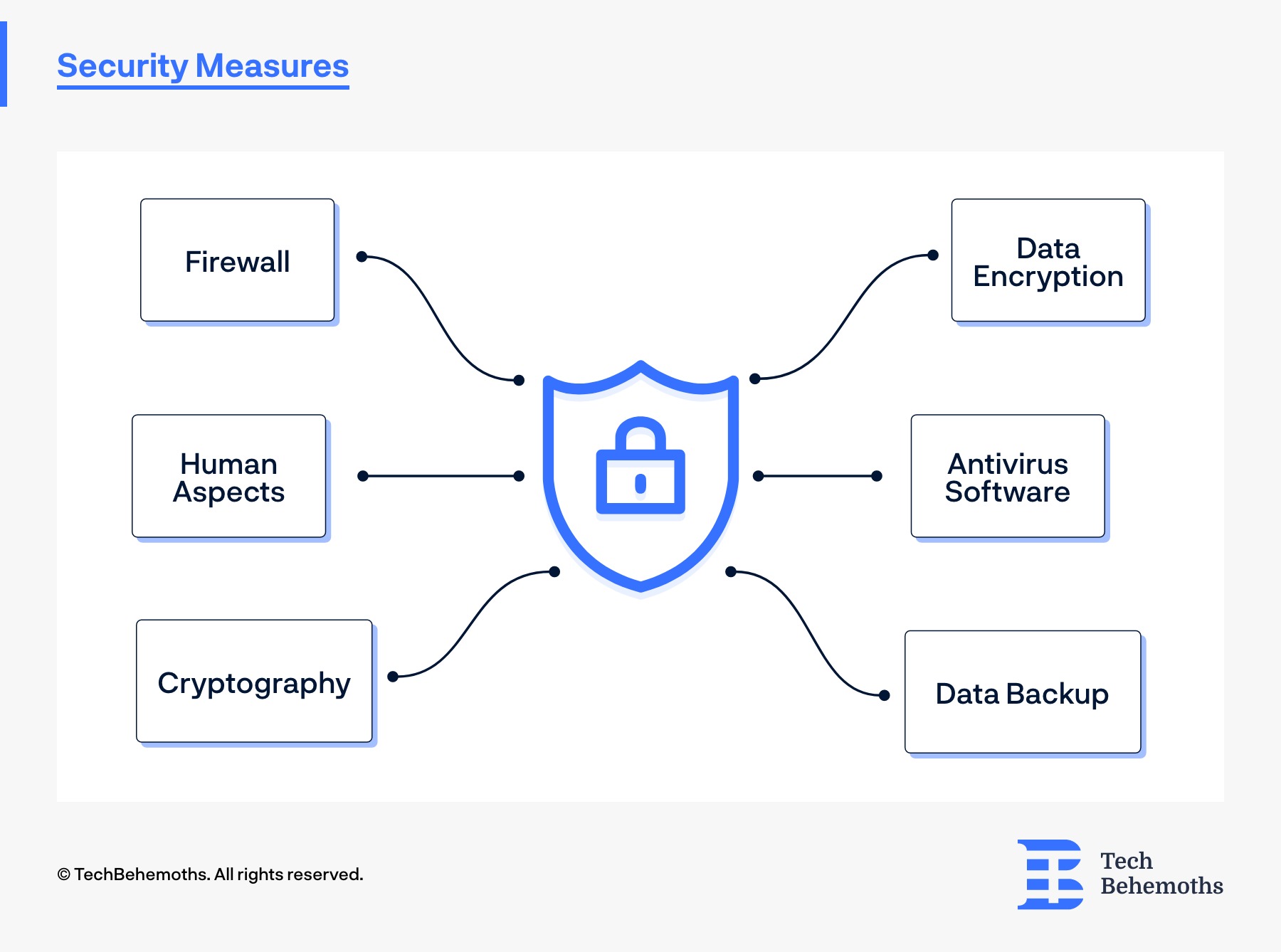
4. Cost: Expensive or Cheap?
Cost is a huge factor when selecting an IT company, but it definitely should not be a deciding one. IT service providers can be both cheap and expensive. However, the cheapest option may not always be the best one. Better is to consider the value that the company provides for the price.
For example, a company can be 20, 30, or 40% more expensive than another, but if there are a number of engineers able to deliver good services, all these engineers are trained to a high standard, the company invests a lot of money in software and tools to help to keep their clients protected and if we compare this to perhaps a cheaper IT company that might not have enough staff to be able to deliver a good service and in busy times the service might drop. The staff might not be very well trained, perhaps they do not invest a lot of money in tools to keep your business protected. In this case, the cheapest offer is not the best one.
So, compare the costs of different IT support companies and the quality of services they provide.
Evaluate the IT company's pricing model and choose the one that aligns with your needs and budget:
-
Hourly Rates - beneficial if you only need occasional IT support or if you have a limited budget, but the costs can quickly add up if you require extensive support
-
Fixed Pricing - a good option if you need ongoing support and want predictable costs, but, you may end up paying for services you don't need.
-
Project-Based Pricing - can provide more transparency and predictability in terms of costs, but it may not be the best fit for smaller projects.
-
Subscription-Based Pricing - you pay a monthly or yearly fee for access to IT services, a good fit for businesses that need ongoing IT support, as it provides a predictable cost structure and often includes additional services or benefits.
That being said, we recommend you ensure that the company’s pricing model is a transparent one. Don't be afraid to negotiate or ask questions in order to see you get the best value for your money.
5. Communication and Customer service
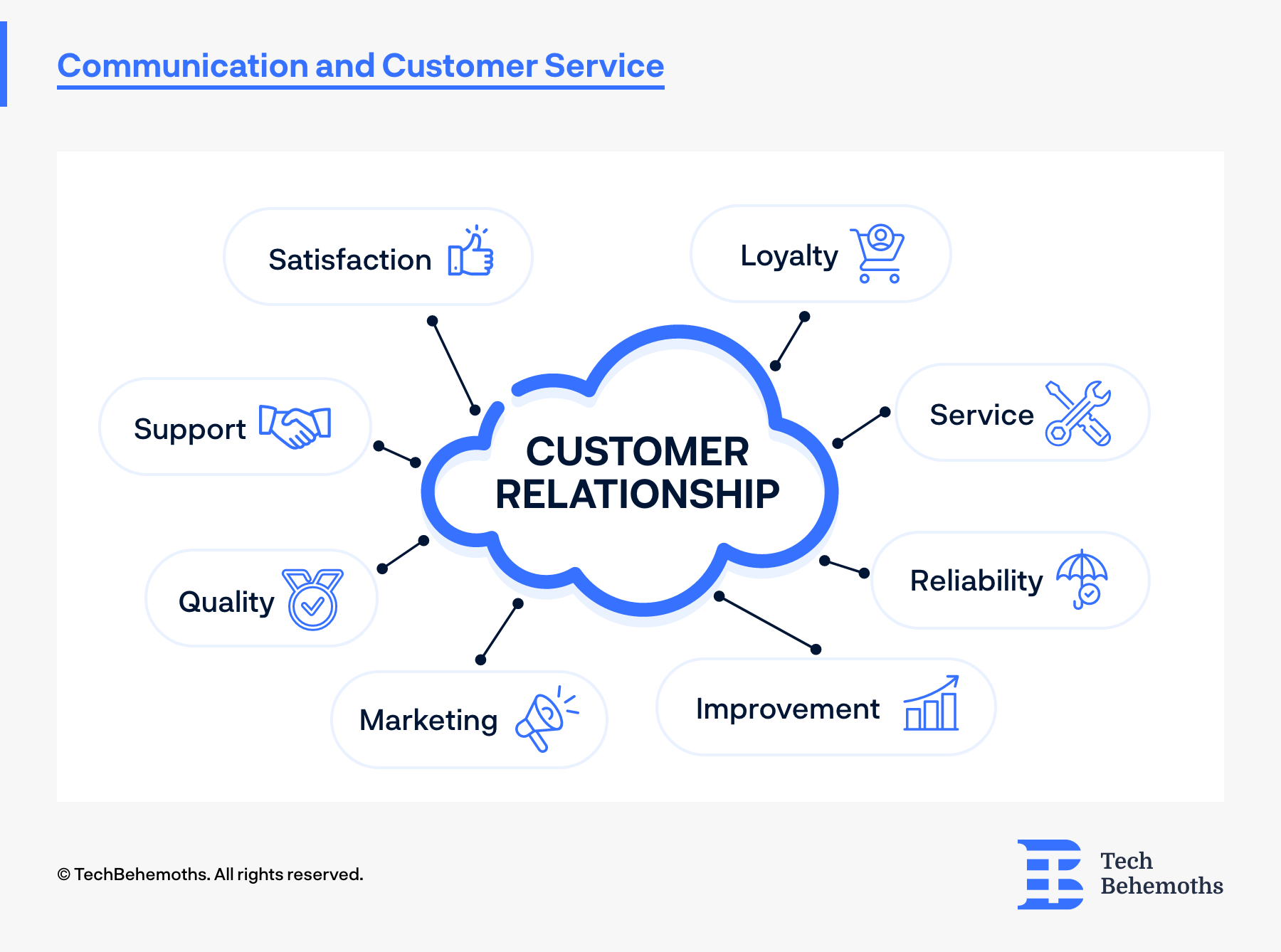
Clear and timely communication helps to ensure that everyone is on the same page, that goals and expectations are properly understood, and that any issues or concerns can be addressed quickly.
You should look for an IT company that communicates clearly with their clients, is able to explain technical issues in non-technical terms, provides updates on the progress of the work, and offer timely support when you need it. Ask them about communication and response time policies.
-
Do they have a dedicated point of contact for clients?
-
How quickly do they respond to inquiries or support requests?
-
What kind of communication channels do they use (e.g., email, phone, chat, etc.)
Important to take into consideration that the level of communication is usually visible from the first meeting, and most of the reports, updates, and other related items are included in the contract, with clear provisions on how communication will take place and how often.
Moreover, communication also encounters linguistic barriers. While English is the most commonly used language internationally, in some countries such as Germany or France, clients choose local companies because they prefer their native language, prefer to invest locally, and have trust in native digital products.
So, before making a decision we encourage you to evaluate their communication and customer service and check their references to get an idea of how they communicate and respond to their clients. It is essential that the IT company you choose to be responsive to your needs.
6. IT team Size
Last but not least thing to consider when you choose an IT company is the size of the IT team.
This can be an important factor to consider when choosing your IT provider.
There is nothing wrong to work with one-man IT companies, but sometimes one man is simply not enough. It may be risky for your project. So you should always look at choosing an IT company with enough members of staff to support your business.
Larger IT companies typically have a greater pool of resources, including staff, equipment, and infrastructure. This can translate into a wider range of services and solutions, faster project completion times, and more reliable support. They can also take on more projects simultaneously.
Large clients come to big companies that can allocate resources, while smaller clients attract projects that correspond to their capacities.
However, a small project doesn't always mean it's cheap, while a large project doesn't always mean a lot of money.
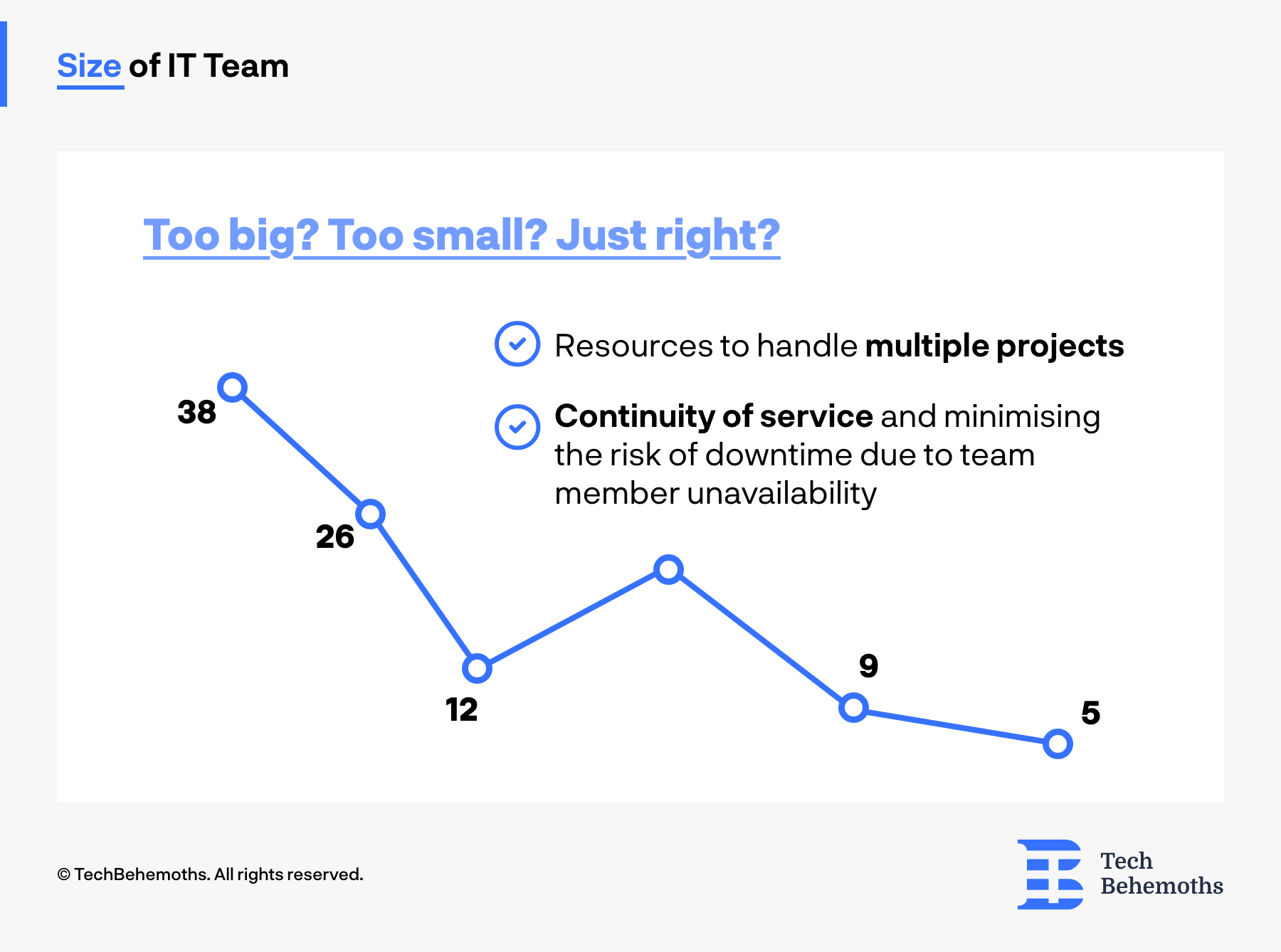
So, when choosing the size of your IT support company choose the company that:
-
has enough resources available for your business to handle multiple projects simultaneously;
-
is better equipped to provide a prompt response to a critical issue that requires immediate attention;
-
helps to ensure continuity of service and minimizes the risk of downtime or delays in case a key team member is unavailable due to illness, vacation, or other reasons.
Conclusion
In conclusion, selecting the right IT company is not an easy decision for any business, and it requires careful consideration of multiple factors.
These factors include the company's experience and expertise, reputation, scalability, customer support, security, and pricing. By taking the time to evaluate these factors thoroughly, businesses can choose an IT company that will provide the necessary services and support to meet their needs and help them achieve their goals.
If you still have doubts about how to select the right IT company for your project, using Valet can take this burden off your shoulders.
With the right IT partner, your business can improve its efficiency, enhance its operations, and achieve its goals. So, make sure to invest time and effort into selecting the right IT company that can help take your business to the next level.